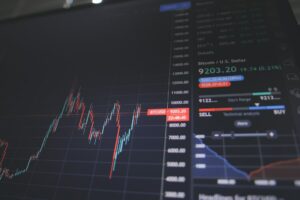The foreign exchange market, or forex, is the largest financial market in the world. With a daily trading volume that exceeds $6 trillion, it dwarfs the stock market and other financial markets by a significant margin. Central to this market are forex banks, which facilitate the buying and selling of currencies for individuals, corporations, and governments. However, the forex banking industry is not immune to the winds of change. In this article, we will explore the future of forex banks and discuss the trends and predictions for the industry.
1. Increased Automation:
One of the key trends that will shape the future of forex banks is increased automation. Advancements in technology, particularly in the field of artificial intelligence and machine learning, have paved the way for automated trading systems. These systems can analyze vast amounts of data, execute trades, and even learn from past experiences to improve their performance. As a result, forex banks are likely to rely more on automated trading systems, reducing the need for human intervention in certain areas of their operations.
2. Regulatory Scrutiny:
The forex banking industry has faced its fair share of scandals and controversies in the past. As a result, regulatory bodies around the world have tightened their grip on the industry. This trend is expected to continue in the future, with greater scrutiny on forex banks to ensure fair and transparent practices. Stricter regulations may lead to increased compliance costs for forex banks, but they will also help improve the overall reputation and trustworthiness of the industry.
3. Digital Transformation:
The rise of digital technologies has transformed numerous industries, and forex banking is no exception. In recent years, we have witnessed the emergence of digital-only banks that offer forex trading services. These digital banks often have lower overhead costs compared to traditional brick-and-mortar banks, allowing them to offer competitive pricing and better user experiences. As a result, traditional forex banks are likely to face increased competition from these digital players, forcing them to adapt and embrace digital transformation.
4. Embracing Cryptocurrencies:
Cryptocurrencies, such as Bitcoin and Ethereum, have gained significant traction in recent years. While they are still highly volatile and speculative assets, they have the potential to disrupt traditional currencies and payment systems. Some forex banks have already started offering cryptocurrency trading services to cater to the growing demand. In the future, we can expect more forex banks to embrace cryptocurrencies, either by offering trading services or exploring the use of blockchain technology for cross-border transactions.
5. Enhanced Customer Experience:
In an increasingly competitive landscape, forex banks will need to focus on enhancing the customer experience. This includes providing user-friendly trading platforms, personalized services, and educational resources to help clients make informed trading decisions. Additionally, forex banks may leverage technologies such as chatbots and robo-advisors to provide round-the-clock support and assistance to their clients. By prioritizing customer experience, forex banks can differentiate themselves from their competitors and build long-lasting relationships with their clients.
In conclusion, the future of forex banks is likely to be shaped by increased automation, regulatory scrutiny, digital transformation, embracing cryptocurrencies, and enhancing the customer experience. These trends will require forex banks to adapt and innovate to stay ahead in the rapidly evolving industry. By embracing technology, complying with regulations, and putting the customer at the center of their operations, forex banks can position themselves for success in the future.





